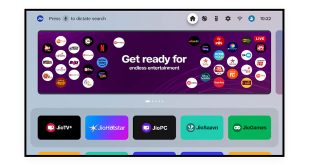Spotify’s strategic defiance against Apple’s 30% App Store fee highlights the growing tension between developers and platform giants. This article explores how Spotify’s quiet rebellion exposes Apple’s biggest weakness and what it means for the future of app marketplaces.
The High Stakes Battle Over App Store Fees
For years, Apple has maintained a firm stance on its App Store policy, requiring developers to pay a 30% commission on all revenue generated through its platform. This policy, while lucrative for Apple, has increasingly drawn criticism from developers and companies who argue that such fees stifle innovation and inflate costs for consumers. Most companies have reluctantly accepted these terms, fearing exclusion from Apple’s vast user base. However, Spotify, the global music streaming giant, has quietly mounted a rebellion that not only challenges Apple’s fee structure but also exposes a critical vulnerability in the tech giant’s ecosystem.
The 30% Commission: A Barrier or a Business Model?
Apple’s 30% cut from app revenues has been a cornerstone of its business model, generating billions annually. This fee applies to subscriptions, in-app purchases, and digital goods, positioning Apple as a gatekeeper of the digital economy. Critics argue that this commission is excessively high compared to other platforms and creates an uneven playing field, particularly for subscription-based services like Spotify.
Spotify’s contention is that this fee unfairly penalizes its business model, forcing it to either absorb the cost or pass it on to consumers, thereby reducing competitiveness. By refusing to fully comply with Apple’s payment demands, Spotify has illuminated the growing friction between platform owners and content providers.
Spotify’s Quiet Rebellion: Strategic Defiance and Its Implications
Unlike high-profile legal battles or public outcries, Spotify’s approach has been subtle yet impactful. The company has explored alternative payment methods outside Apple’s in-app purchase system, encouraging users to subscribe directly through its website. This maneuver effectively bypasses the 30% fee, challenging Apple’s control over payment flows.
Spotify’s strategy highlights a broader trend among developers seeking to reclaim autonomy over their revenue streams. This quiet defiance has prompted Apple to reconsider aspects of its policies, as evidenced by recent regulatory scrutiny and legal challenges worldwide.
Apple’s Vulnerability: The Limits of Control in a Competitive Market
Spotify’s resistance exposes a significant weakness in Apple’s ecosystem: its reliance on developer cooperation. While Apple’s App Store is a dominant distribution channel, it cannot function without the participation of app creators. If more companies follow Spotify’s lead, Apple risks losing valuable content and user engagement, which could erode its market position.
Moreover, regulatory bodies in multiple regions are increasingly questioning the fairness of Apple’s commission structure. Investigations and lawsuits in the US, Europe, and Asia signal a growing consensus that platform fees require reform to foster competition and innovation.
Broader Industry Impact: A Shift Toward Fairer App Economy
Spotify’s challenge is part of a larger movement advocating for fairer terms in the digital marketplace. Other major players, including Epic Games and Netflix, have similarly contested Apple’s policies, pushing for lower fees and greater transparency.
This evolving landscape suggests that the era of unilateral platform control may be waning. Developers and consumers alike are demanding more equitable arrangements that balance platform profitability with innovation incentives.
Conclusion: The Future of App Store Economics Hinges on Developer Empowerment
Spotify’s discreet yet determined stand against Apple’s 30% commission marks a pivotal moment in the ongoing debate over app store economics. By exposing Apple’s dependency on developer goodwill and highlighting the unsustainability of high fees, Spotify has catalyzed a reevaluation of how digital marketplaces operate.
As regulatory pressures mount and more developers assert their rights, Apple may need to adapt its policies to maintain its ecosystem’s vitality. The outcome of this conflict will shape the future of app distribution, revenue sharing, and innovation in the digital age.
 Digital Tech Byte Latest Technology News
Digital Tech Byte Latest Technology News





